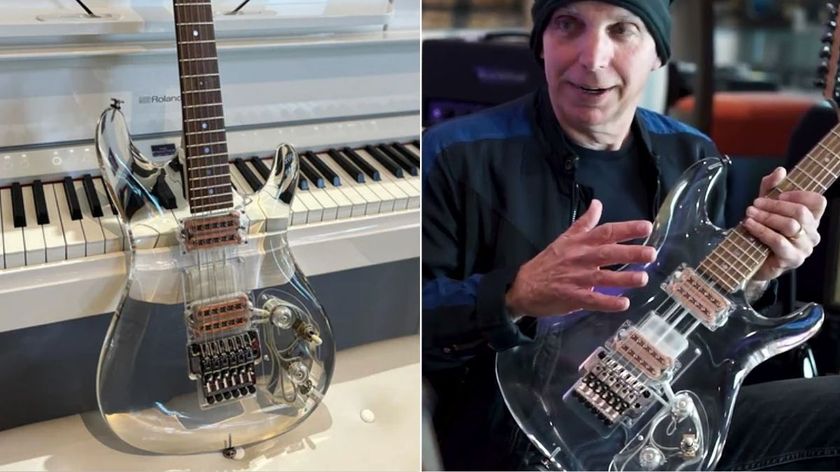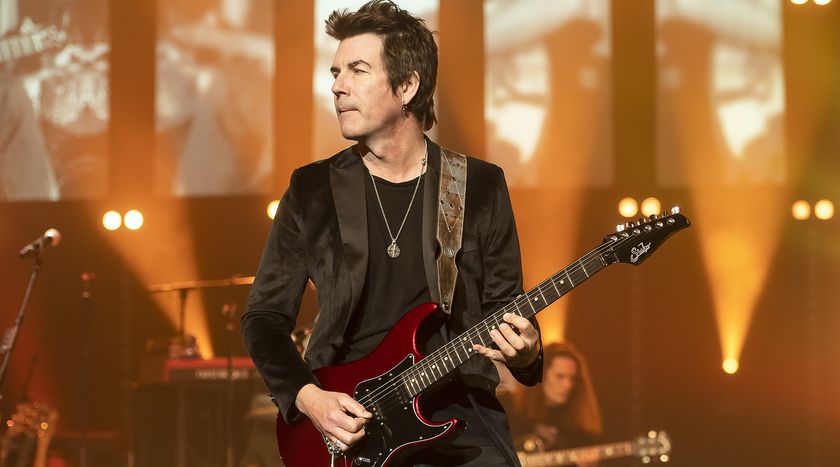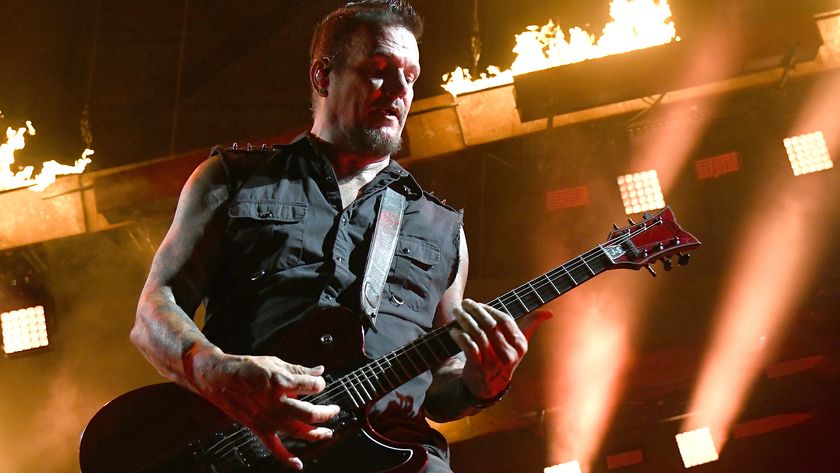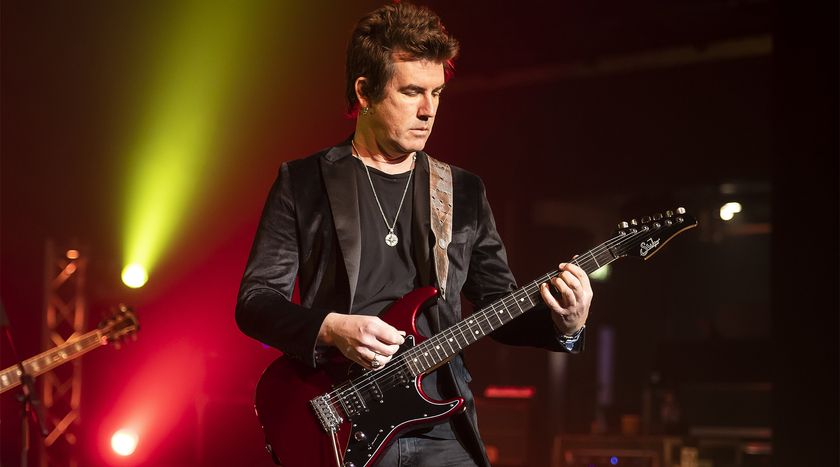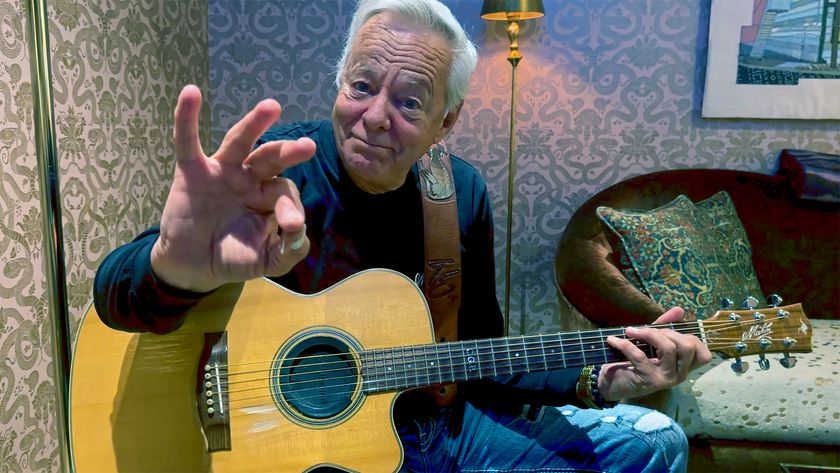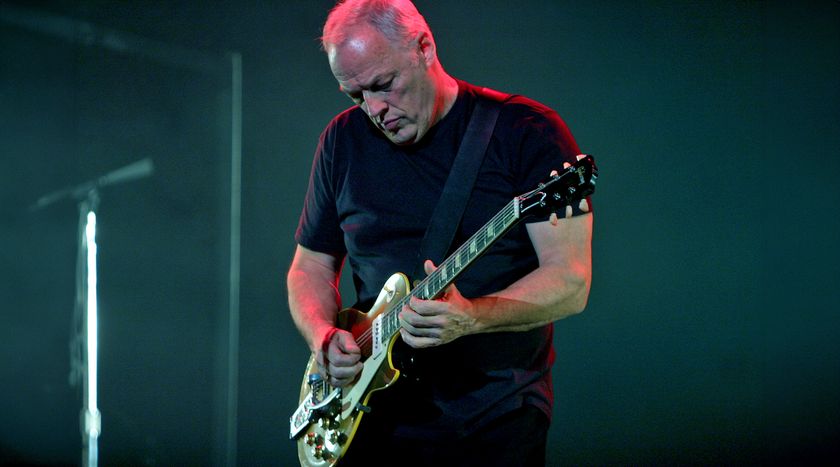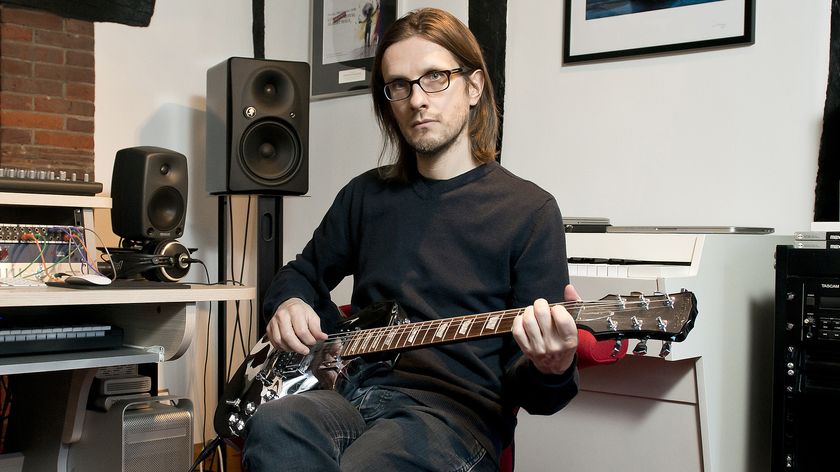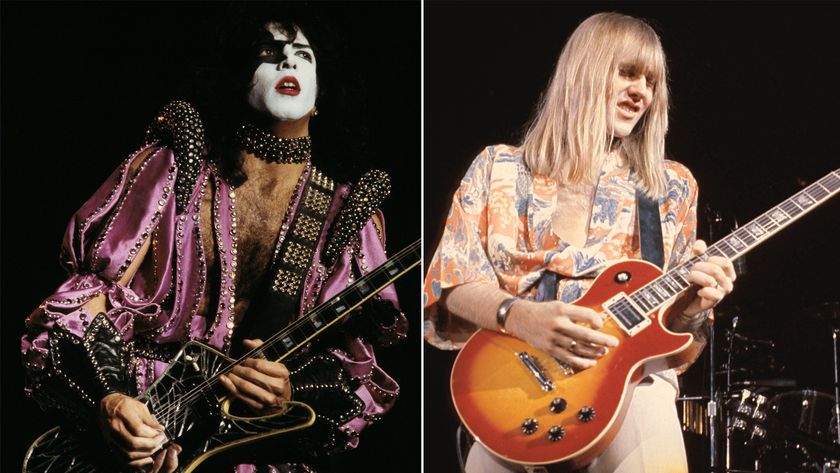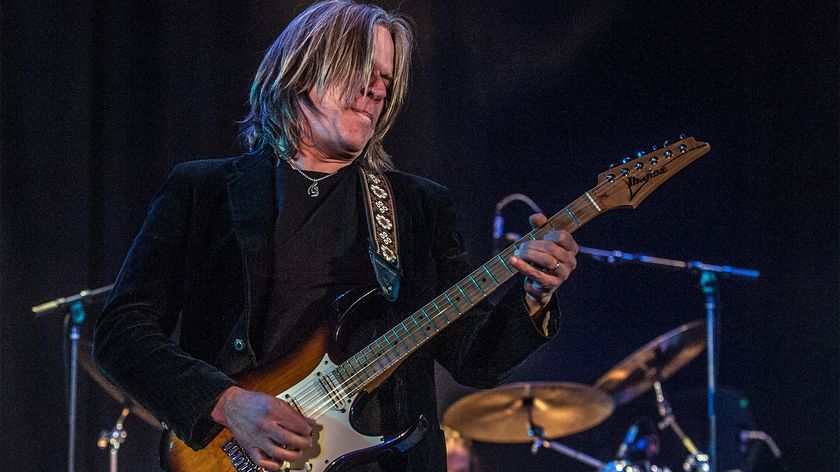“I Think Tone Is in the Hands – From the Hand to the Heart”: Angela Petrilli Talks Guitar Tone and Recording at the Fabled Sunset Sound Studios
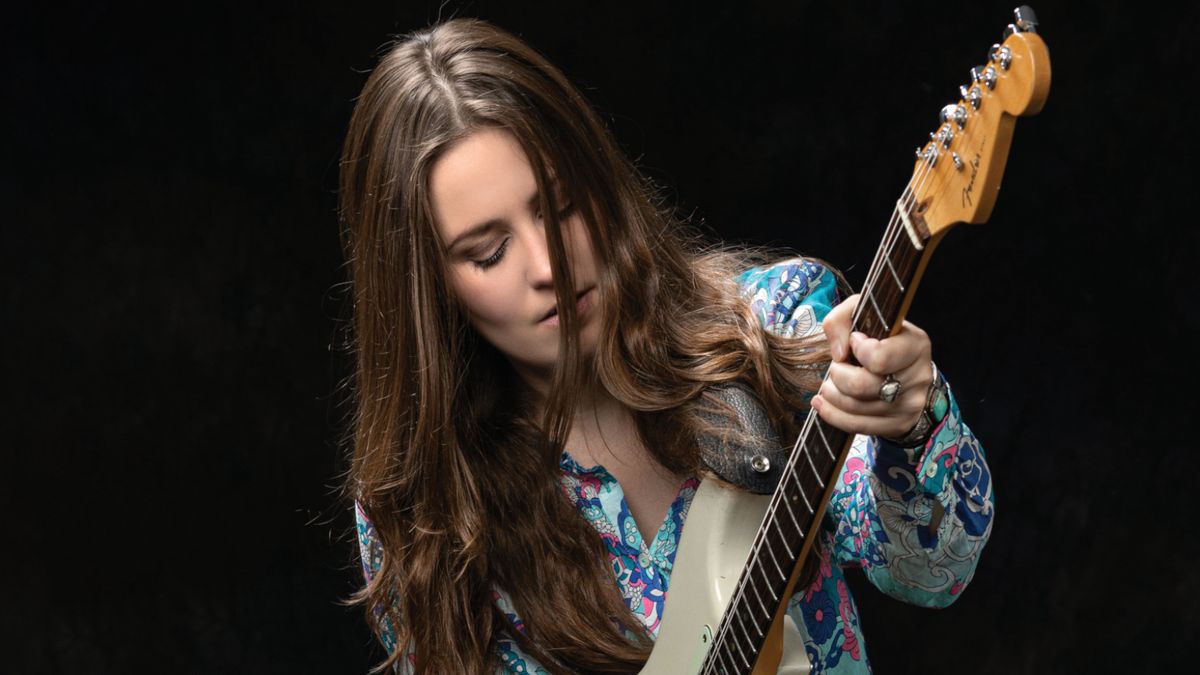
On her just-released EP, The Voices (DistroKid), Los Angeles–based guitarist and singer Angela Petrilli comes on like a true original, delivering smart, tough and soulful blues rock that brims with blood-pounding guitar playing on a set of songs that artfully examines the highs and lows of the human spirit without being obvious or overdrawn.
The record is a triumph all right, but it’s one Petrilli hadn’t planned on making. Until 2019, the guitarist was one half of the Americana duo Roses and Cigarettes. On the heels of the release of the group’s second album, Echoes & Silence, Petrilli’s longtime bandmate Jenny Pagliaro passed away from stage 4 breast cancer.
While grieving her friend and musical partner, Petrilli didn’t pick up the guitar for months. The very sight of the instrument reminded her too much of what she’d lost. “My time in Roses and Cigarettes was so beautiful, and I had to honor it properly,” she explains. “I decided I had to live my life. I traveled to places where I have an accent.
“When I got back home, I still didn’t know what I would do, but my friend Eric Tessmer invited me to play a show in Austin. Getting back onstage, I thought, Oh…this does bring me joy! I remember this, and I missed it.”
Petrilli got back to it with a vengeance. She assembled a group she dubbed the Players – bassist Brett Grossman, drummer Stephen Haaker, keyboardist Bobby Victor, percussionist Vic Vanacore III and harmonica player Matt Lomeo – and tested out her new material at shows in and around L.A. ahead of recording sessions at the famed Sunset Sound Studios.
“It was one of the best and easiest times I’ve ever had making a record,” Petrilli says. “I never thought I’d be a band leader, but it turns out that I actually like it. “This EP celebrates the joy and fragility of life,” she adds. “It was important to me to illustrate that in my playing. Coming from where I was, I’m just so thankful to be able to do what I do. I have a heart that beats and a body that’s healthy. I get to make music with a piece of wood and strings. I’m just so happy to be here.”
Let’s start with how you began playing. Was there a moment when you realized that you wanted to pick up the guitar?
Well, I was always surrounded by music. My mother played guitar a bit. She and my dad loved music and saw all the big bands – Zeppelin, Skynyrd… Everybody you can imagine. My dad was way into the blues. That music was playing around me from the start. My mom had a big Guild acoustic. I was four years old and I saw her playing these chords. I remember saying, “I can do that.”
Did playing come easily to you?
Somewhat. I was 10 years old and heard “Put Your Lights On” by Santana and Everlast on Supernatural. I told my mom, “I want to learn how to play that.” She figured out the chords and showed them to me. I practiced all day, and the next morning I woke up my parents and played it for them. They were like, “Okay, this kid needs lessons!” [laughs] After that, I was off and running. I played an acoustic for three years before I got a Strat.
Blues is all over your style. Who were your big influences?
Stevie Ray Vaughan, for sure. David Gilmour is another big favorite. The texture of his playing and how he sounds so human – he just has that touch, you know? Then there’s Jimi Hendrix, Jimmy Page, Howlin’ Wolf, Bonnie Raitt, Susan Tedeschi... There’s so many. I try my best to take bits from them.
And how do you use all of those bits?
I try to be conversational. I’m mindful that my guitar should tell a story. I’m a big believer in “less is more.” I like space. I let things be big when they need to be, but then I bring things down and get quiet. I like dynamics.
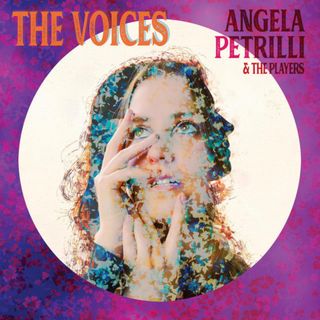
Were you in other bands before Roses and Cigarettes?
I was a guitar-for-hire before Roses and Cigarettes. I played with other bands for many years. I went to open-mic nights and jams, and met everybody I could. I loved talking to other musicians and playing with them. I just felt so grateful that I could do something that brought me so much joy.
One day I won’t have to ask this, but did you ever encounter sexism? Were there ever issues with you being a female guitarist?
Very rarely was it an issue. There was one audition when they said, “You’re great, and you’re an awesome player, but we really need to hire a guy.” It was just the one time.
Overall, your guitar sound is very pure and unaffected. You don’t seem to go for a lot of effects.
No, I don’t. I think tone is in the hands – from the hand to the heart. I try to keep it as clean and direct as possible. Sometimes I like fuzz and wah, but other than that, I think it’s gotta come from your hands.
You’re a terrific slide player. On “Red River,” your guitar lines are big and bold, yet poetic.
Oh, thanks! For me, it’s been a lot of Allman Brothers. Lots of Duane Allman. Warren Haynes is one of my favorites. Any time Gov’t Mule is playing, I drop everything and go see Warren play. He’s so soulful and tasteful.
Your solo on “High Roller” is beautifully structured. Do you write solos out before you record them?
That solo I had written out before we recorded. I sat down and worked it out, and I rewound the track over and over until I got it. I wanted it to be melodic and to serve the song. Other tracks I would do live and come up with stuff in the moment. Sometimes you’ve got to breathe the air and let the music happen.
Talk to me about recording at Sunset Sound. What does that place offer a guitarist?
Oh, man! It’s in the rooms. You walk in and you feel the energy from everybody who ever recorded there. I wanted to honor what they left there and put my little time stamp on the place. The studio walls are musical; they give you back what you put into it, but they give you back a little more.
I follow my gut, and I’m grateful for the opportunities that come my way
Angela Petrilli
Some studios are sterile, but Sunset Sound has soul. I don’t know… it’s just an inspiring place to record in. It was like the sixth player in the band.
What were your main guitars on the EP?
I used my Les Paul R9, which was rockin’! It’s a Custom Shop R9 in Lemon Burst, and I just love that thing. I also used a ’58 Les Paul Jr. Custom Shop reissue. Those P90s – forget about it. It’s just perfection. And then I used a ’98 Fender Strat Deluxe with Fishman Fluence Strat-style pickups. Those were the big three.
Aside from leading this group, do you have other plans in mind? Would you consider being the guitarist in somebody else’s band?
That’s hard to say. I follow my gut, and I’m grateful for the opportunities that come my way. This band has been such a gift in my life, and I want to explore this new phase musically. I can’t say for sure what I would do if I got a call to be in somebody else’s band. I don’t have a master plan. I’m just trying to take things one day at a time and be in the moment.
Get The Pick Newsletter
All the latest guitar news, interviews, lessons, reviews, deals and more, direct to your inbox!
Joe is a freelance journalist who has, over the past few decades, interviewed hundreds of guitarists for Guitar World, Guitar Player, MusicRadar and Classic Rock. He is also a former editor of Guitar World, contributing writer for Guitar Aficionado and VP of A&R for Island Records. He’s an enthusiastic guitarist, but he’s nowhere near the likes of the people he interviews. Surprisingly, his skills are more suited to the drums. If you need a drummer for your Beatles tribute band, look him up.
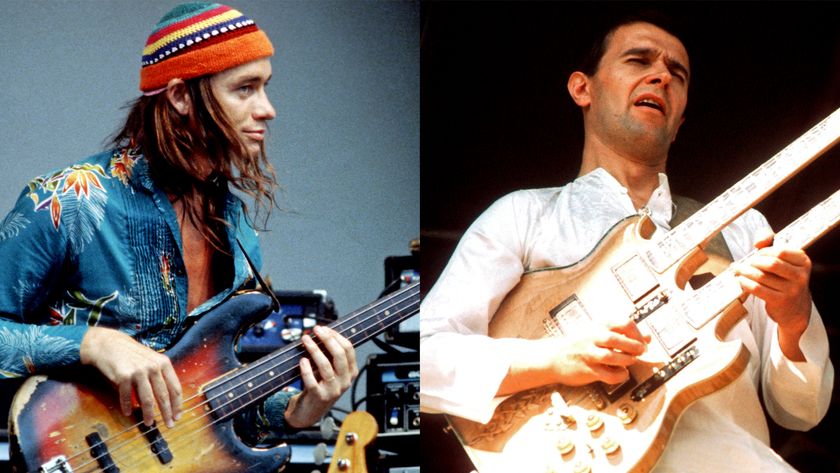
"Jaco thought he was gonna die that day in the control room of CBS! Tony was furious." John McLaughlin on Jaco Pastorius, Tony Williams, and the short and tumultuous reign of the Trio of Doom
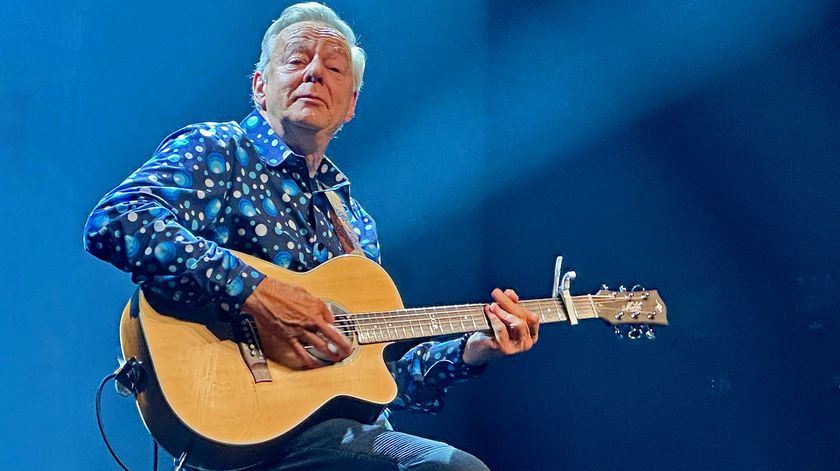
“It’s all been building up to 8 p.m. when the lights go down and the crowd roars.” Tommy Emmanuel shares his gig-day guitar routine, from sun-up to show time
